物联网、生态热潮方兴未艾,互联网大数据与智慧城市新思潮却已蜂拥而至。传统 的交通行业正在面临信息革命可能带来的新格局。然而,这些革新思潮是否真会带来我们 所急切期待的全面治理交通问题的灵丹妙药吗?在中国城市化加速推进的同时,交通拥堵、 环境污染、安全事故已经成为城市发展“新常态”,这些顽症使得我国城市生存、发展环境 面临空前挑战。我们需重新把脉新思潮下的交通问题与城市发展问题。借助第15 届 COTA 国际交通科技年会(CICTP 2015)的大好契机,我们组织该特别论坛,有幸邀请 到部分国内外知名专家学者与政府和工业界以及各路有识之士,分享观点,互动思辨,为 治理中国大城市与交通系统互适应发展中面临的病症困扰把脉,为可持续性发展的新挑战 而出谋划策。
Time |
Speaker |
|---|---|
16:30 – 16:45 |
Research on the Evolution of Chinese Urban Road Traffic System and its Design IssuesDr. Xiaoguang Yang, Professor and Director of Intelligent Transportation Systems Research Center at Tongji University, China. |
14:45 – 17:00 |
Data-Driven Transportation Decision Making in the Smart Cities ContextDr. Yinhai Wang, Professor of University of Washington, USA |
17:00 – 17:15 |
OpenITS and Next Generation of Intelligent Transportation SystemsDr. Zhi Yu, Professor of Sun-Yat Sen University, China. |
17:15 – 17:30 |
Planning Design and Construction Experience of New Generation of Urban Transportation Information Center: Shenzhen ExampleDr. Zhichao Guan (关志超), Shenzhen Transportation Comprehensive Management Center, China. |
17:30 – 17:45 |
Explore the Laws of TransportationDr. Hongzhi Guan, Professor of Beijing University of Technology, China. |
17:45 – 18:00 |
Data-driven Transportation Research on Chinese Major CitiesDr. Meng Li, Associate Professor of Tsinghua University, China. |
18:00 – 18:20 |
Question and Answer. |
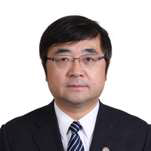
Dr. Xiaoguang Yang obtained his B.S. (Civil Engineering, 1978.09 ~ 1982.07) and M.S. ( Traffic Engineering) degrees from Tongji University, and a Ph.D. degree in civil engineering under a joint program of Tongji University and Kyoto University. He was the executive member of ITS advisory committee of China Ministry of Science and Technology. Currently, he is the associate chair of the transportation engineering subcommittee of China Ministry of Education. As the principle investigator, Dr. Yang has already completed or been studying almost 20 national research projects, six of which were sponsored by NSFC and three of which were funded by 863 plan. He has more than 130 papers published in transportationjournals, most of which are related to transportation network analysis, traffic management and operation, cooperative vehicle infrastructure systems, ITS, signal control, and public transportation.
This presentation will present an analysis of Chinese urban traffic problems and their causes, and in-depth discussion of the evolution and development of Chinese urban road traffic system. In particular, the concept of "traffic design" is proposed, and the key role and value of "traffic design" in Chinese urban traffic problems are illustrated by a case study.
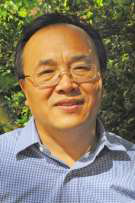
Dr. Wang is a professor in the Civil and Environmental Engineering Department at the University of Washington (UW) and the director for Pacific Northwest Transportation Consortium (PacTrans), USDOT University Transportation Centre for Federal Region 10. Dr. Wang has conducted extensive research in traffic sensing, transportation safety, transportation data management and analysis, traffic operations, advanced traffic control systems, and traffic simulation. He has published over ninety peer-reviewed journal articles. He is a governor on the American Society of Civil Engineers (ASCE) Transportation and Development Institute (T&DI) Board and a member on the IEEE Smart Cities Steering Committee. Dr. Wang is currently an associate editor for three SCI-indexed journals including ASCE Journal of Transportation Engineering and Journal of ITS.
With recent advances in sensing, networking, and computing technologies, more and more
cities have launched their smart cities plans to improve quality of life, sustainability, efficiency,
and productivity. Sensor networks are fundamental elements of smart cities and the data they
produce have the potential of generating the intelligence needed to make urban transportation
smarter. Many new transportation data and computational resources will become available.
These new assets are likely to bring in new opportunities to understand transportation systems
better and address those critical transportation issues in a faster, more accountable, and more
cost-effective way.
To take advantage of these big data, a new theoretical framework and its supporting platform
are clearly needed to integrate the quickly growing massive amount of data, typically from
numerous sources of varying spatial and temporal characteristics, into the large-scale
transportation problem solving and decision making processes. Efforts along this line are likely
to form up a new subject area, namely e-science of transportation, in the years to come. Through
his talk, the speaker will share his vision and pilot research on extracting transportation big data
streams from the smart cities sensor networks and demonstrate the values of these data in largescale
system analysis and decision support through an online regional-map-based data platform
named Digital Roadway Interactive Visualization and Evaluation Network (DRIVE Net).
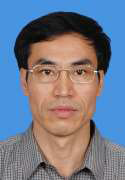
Professor Zhi YU is a Chair Professor of Transportation Engineering of School of Engineering at Sun Yat-Sen University (SYSU), P.R. China. He joined the SYSU as a full professor in 2000. Prof. YU is the founding dean of School of Engineering and the founding director of the research center of intelligent transportation systems as well as the Guangdong Provincial Key Laboratory of Intelligent Transportation Systems. Prof. YU has over 15 years professional experience in systematically developing intelligent transportation systems. Besides transportation research, Prof. YU is also interested in renewable energy, urban environment including traffic emission and noise in particular, as well as carbon trading.
Driven by several revolutionary technologies, especially big data, internet of things (IOT)
and automatic driving, the next generation of Intelligent Transportation System (brief as
“NGITS” hereafter) will come in a decade.
With thorough perception, comprehensive interconnection and in-depth intelligence,
NGITS will present different features. For example, the boundary between dynamic traffic and
static traffic will blur in the future, transportation administrators, operators and users will
interact more closely and traffic planning, administration and construction will be considered as
integrated procedures.
NGITS will change our traditional transportation organization and operation mode,
furthermore, the physical and mathematical models for nowadays transportation system, which
builds mainly on statistical and experiential methodologies, will not be applicable with NGITS.
Bearing in mind the features of NGITS, OpenITS project launched. The aim of the project
is to promote the development and deployment of NGITS. To that end, two means were
identified. One is to establish the alliance of OpenITS, which means unite together the research
community, the other is to set up an open platform, which will benefit data sharing and
benchmarking.
There are 5 components of the project, we call it 5 opens. Among them, Openarchitecture
provides hierarchical framework of the whole project. Open Data concentrates on data sharing,
Open Platform for tools sharing, Open Evaluation for index and criteria sharing and Open
Question for hot topics discussion. We hope with ‘OPEN, Collaborative and Innovative’
principals, the project will attract more and more ITS communities to join in.
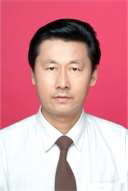
Guan Zhichao, a professor senior engineer and chief engineer at Shenzhen transportation operation command center, Director of Shenzhen traffic control and simulation engineering center. He received his PhD degree in China transportation planning and management program from Tongji university. He is the member of the national science and technology committee of experts, and an expert of National 863 modern traffic program, information expert of the Ministry of Transport, executive director and leading transportation expert of Board of Directors of China Intelligent Transportation Systems Association, expert of Industry and Information Technology Ministry. He is the leading scholar and area leader of Shenzhen City Intelligent Transportation Industry, government special allowance expert, and national registered electrical (intelligent) engineer. Meanwhile, he serves as an adjunct professor at Tsinghua University Shenzhen Graduate School, Wuhan University, Harbin Institute of Technology Shenzhen Graduate School, Shenzhen University. He has led the management of more than 30 research and large system engineering projects with support of more than 10 million Chinese yuan in the intelligent transportation area, including a State "11.5" science and technology supporting program, 15 projects funded by Housing and Urban Construction Department, Ministry of Transport, Ministry of Industry and Information Technology, and General Administration of Customs Science and Technology Program.
Shenzhen transportation operations command center is the Shenzhen municipal government by the 26th World University Games will "office city, Dayun it office. In August 2011 formally approved the establishment of the municipal institutions, Shenzhen Intelligent Transportation"12.5"construction and development of an important symbol. For five years, the integration and optimization of the urban traffic information resources system, protect and improve the urban traffic planning, construction, management of knowledge accumulation. Shenzhen comprehensive traffic command center since its inception, has received the visit in domestic and foreign countries, Department, provinces, municipalities, enterprises, institutions, private groups and individuals on behalf of the group nearly 500 times; today, "center" has become the Shenzhen high tech demonstration base and reform of the city put a banner. In the face of the current situation of the development of the country and the reform of government agencies, many cities in China are developing the design and construction of the new generation of urban comprehensive traffic information center. How according to different conditions of their urban traffic demand, urban traffic scale, urban transportation system, urban traffic information environment and urban traffic information service object of the city, make full use of their urban traffic information existing resources and environment, stand in the height of the city, to realize high level, forward-looking, scientific and practical urban positioning, planning design and construction management of a suitable for the characteristics of local urban comprehensive traffic information center, crack this problem has become the primary task. Based on this, in order to deepen and visitors understanding of Shenzhen city comprehensive transportation to run the command center and, meet the visitor information of the "center" claim demands, we carry out a new generation of urban comprehensive traffic information center planning and design and construction practice and research.
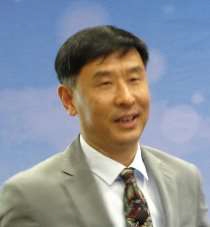
1982 Traffic Engineering, Xi’an Highway University, Degree: B.S.
1989 Master Course of Graduate School, Xi’an Highway University, Degree: Master
1997 Ph. D. Course of Dept. of Civil Engineering, Kyoto University, Degree: Ph.D.
Employment Record:
1982 Xi’an Highway University Instructor
1993 Yamanashi University, Assistant Professor
1999~ Beijing University of Technology, Associate Professor, Professor
In recent years, China has attained a great achievement on urban construction and
transportation construction. Meanwhile, a lot of problems are found. For example, in some
places, people paid much more attention on road construction and neglected people’s daily life
in the city. Some other place, parking demand was neglected, and this made a negative impact
to the basic function of urban traffic system.
What is the origin of these problems?
Physicists made an assumption that there was a fundamental material and the world was made
by this material. Right now, physicists are trying to find this material for it is the key to
understand the mystery of the world.
The Old Master said:
One is the child of the divine law,
After one come two,
After two come three,
After three come all things.
Here we are going to carry out a discussion of the “Laws” of transportation system.
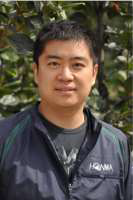
Dr. Meng Li is an Associate Professor in the Department of Civil Engineering at Tsinghua University, and Deputy Director, Tsinghua – Daimler Center for Sustainable Transportation. His main research areas are transportation system analysis and modeling, intelligent transportation systems, travel behavior analysis and data mining. As the principle engineer, Dr. Li has been undertaking the National High Technology Research and Development Program of China (863 Program), national science and technology support program, National Natural Science Foundation of China key project, and the world bank, the global environment facility (GEF) and Volvo foundation supported research and development projects. Dr. Li is a member of Data Collection and Monitoring Committee (ABJ25T) of Transportation Research Board, a member of Intelligent Transportation Signal Operation (ITSO) Committee of Institute of Transportation Engineering (ITE) and a member of American Society of Civil Engineering (ASCE). Dr. Li has published more than 50 refereed papers, most of which are SCI and EI-indexed papers, and applied for a series of patents. Dr. Li received his Ph.D. from Nagoya University in 2010, his master of science and master of engineering degrees from University of California in 2004 and 2003 respectively. He received his bachelor degree from Tsinghua University in 2001. Prior to his current appointment at Tsinghua University, he worked as a R&D engineer at University of California at Berkeley between 2004 and 2010. Dr. Li received his National Science & Technology Progress Award Grade 2 in 2011.
Transportation is a huge and complex system due to involvements of human factors. In the past, transportation planners, operators, and researchers have been attempting to model and regulate the system. In recent years, mobile navigators and other apps are getting more and more popular, which generate significant personal travel data. Our team utilized such detailed data to understand traffic demand, supply and their interactions characteristics in Chinese cities. We also attempted to evaluate the transportation system from various perspectives. At last, we try to facilitate transportation policy-makers, planners and managers to make their policy and decisions.
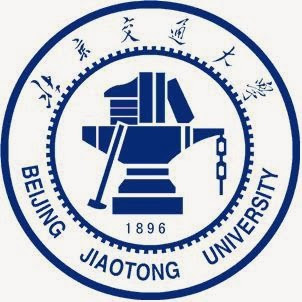

About CICTP
Quick Links
Contact
Beijing Jiaotong University:
Dr. Xuedong Yan (xdyan@bjtu.edu.cn)
COTA:
Dr. Yu Zhang (yuzhang@usf.edu), or
Dr. Yafeng Yin (yafeng@ce.ufl.edu).